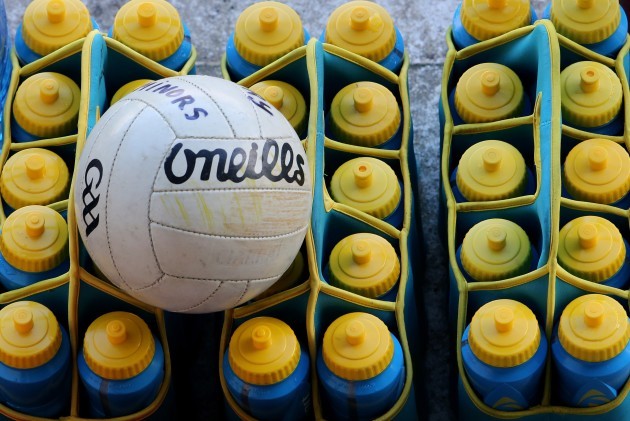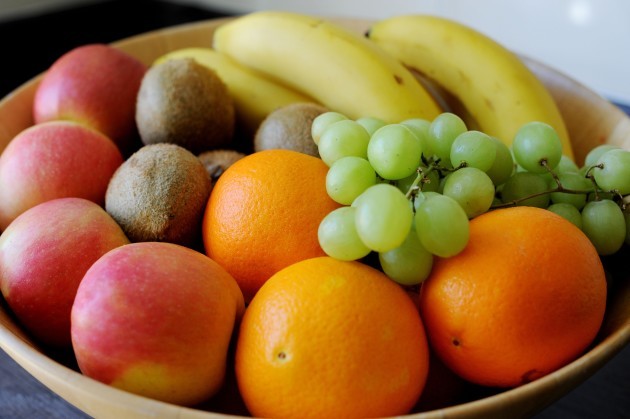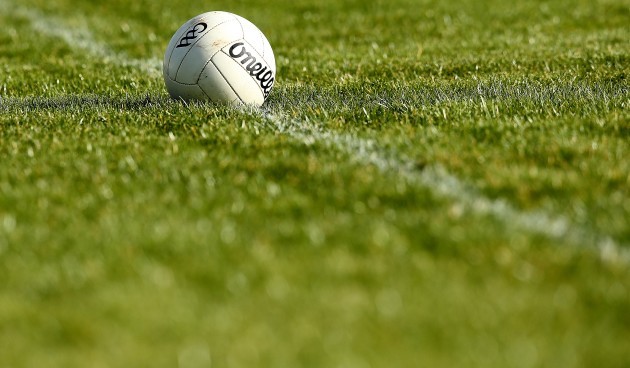FOR MANY GAA teams, it’s the time of year when the start of the championship is just around the corner.
Of all the sciences that have been introduced into the GAA in recent years, nutrition may have more to offer than any other when it comes to ensuring that players are at their peak for those big games over the summer.
It is clear that — regardless of what level a player is competing at — there is much to gain from improving nutrition, whether it’s increased standard of performance, smoother recovery or better health in general.
From dealing directly with players and based on my own experiences, here are a few points that can lead to improvement across all levels…
1. Proper hydration
The majority of players still need to increase their daily fluid intake. When you exercise, you lose water through sweating and dehydration can quickly set in, therefore affecting the ability to perform muscular work which then has a detrimental impact on performance.
Aim to consume three-to-four litres of water per day. Always carry a water bottle with you and sip throughout the day. During training/matches, try to drink the equivalent of a small glass of water every 15 minutes. On hotter days, add electrolytes to your water bottle during training/matches, which will help mineral balance.
After exercise, don’t just wait until you are thirsty. Sip freely to replace any lost fluids.
2. The right fuel for your engine
As many players work full-time jobs in addition to training/matches, under-eating for individual needs is a common problem. It’s not unusual for a player to be out of the house until 10pm after starting their day at 8am, while merely grabbing a sandwich before training just to fill the gap. This will provide a quick burst of energy but it is not sufficient in the context of field sessions, gym sessions and matches.
By falling short on their calorie demands, most players don’t meet their carbohydrate and protein needs. Carbohydrates are broken down into glucose, which is used as fuel directly by working muscles. Protein is vital for recovery and maintenance of lean muscle tissue.
Get into a routine of eating every two-to-three hours to balance blood sugars, using meals which are rich in carbohydrates and protein for sustained energy.
Good sources of carbohydrates are:
Oats
Fruit
Rice
Potatoes
Wholemeal bread
Good sources of protein are:
Eggs
Chicken/Turkey
Fish
Beef
Natural yogurt
Whey protein powder
Carbohydrates which are easier to digest, such as liquid cyclic dextrins, can be a convenient way to keep carbohydrate stores and energy topped up around training and matches.
3. Laying the foundations
For many players, diet only improves a few days before a championship game. However, by then it can be too late. As is the case with a championship game, months of hard training is all geared towards the big day, so following a good diet for just a few days isn’t allowing your body enough sufficient time to be at its prime.
Establish a routine of providing your body with the essential nutrients it needs to perform and recover adequately. Each week, plan ahead to ensure that you have the key nutrients at hand, rather than opting for unsuitable foods due to convenience.
A simple tip is pick two days a week when you can prepare food in bulk for the days ahead, instead of cooking meals every night for the next day, which can be frustrating on top of a hectic schedule.
Natural talent will only take a player so far. Don’t rely on a few ham sandwiches and Jaffa cakes and expect to be at your best. Start as you mean to go on by putting the foundations in place for a suitable diet to support your training and enjoy a fruitful championship in the summer.
Paul O’Sullivan is a nutrition coach with Dennehy’s Bespoke Nutrition at Dennehy’s Health & Fitness, Cork. He is a former senior hurler with Blackrock.




